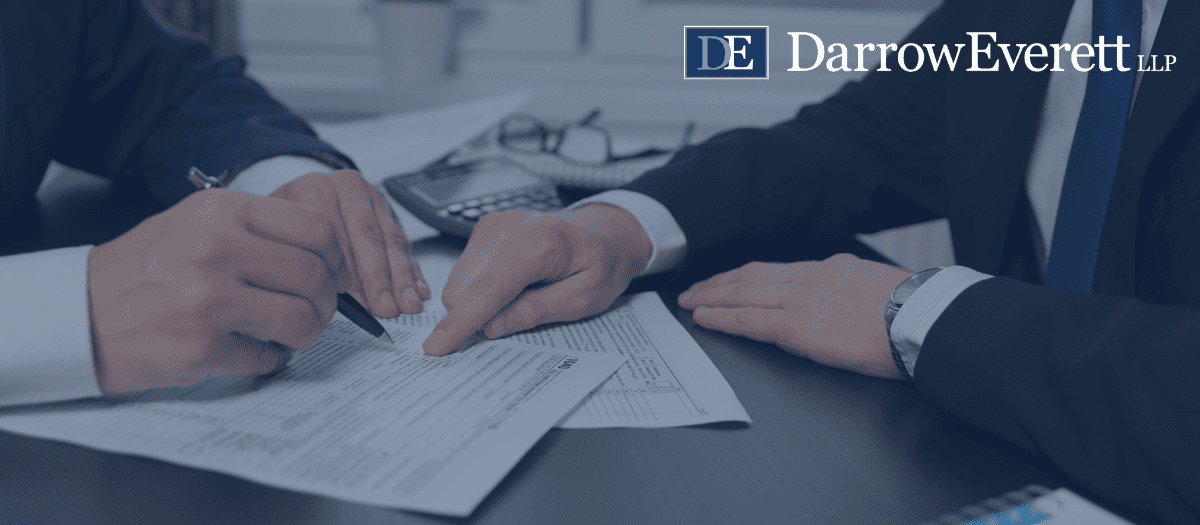
In Soroban Capital Partners, LP v. Commissioner,[1] the U.S. Tax Court determined that the exception to net earnings from self-employment in Section 1402(a)(13) of the Internal Revenue Code of 1986, as amended (the “Code”)[2] does not automatically apply to all limited partners in a state law limited partnership. The court concluded instead that it must apply a “functional analysis” test to determine whether a partner in a limited partnership is entitled to the exception in Section 1402(a)(13) for allocations to it of partnership income.[3] If the exception does not apply, this means a limited partner’s share of the partnership’s ordinary business income is subject to self-employment tax of 15.3%. In and of itself, this is not new ground: the Tax Court already had ruled this way in the context of partners in a limited liability partnership (“LLP”)[4] and members of an LLC.[5] What is novel about Soroban Capital Partners is the court’s extending this ruling to state law limited partners in a state law limited partnership.
What’s At Issue With This Case?
Soroban Capital Partners, LP (“Soroban”), an investment firm, is a former Delaware LLC that converted to a limited partnership under Delaware law in 2015. Its six partners are Soroban Capital Partners GP LLC (the general partner) (“Soroban GP”), and five limited partners: Eric Mandelblatt, Gaurav Kapadia, Scott Friedman, EWM1 LLC (“EWM”) and GKK LLC (“GKK”). EWM and GKK were disregarded entities owned by Mr. Mandelblatt and Mr. Kapadia, so for federal income tax purposes, Messrs. Madelblatt, Kapadia and Friedman were the three limited partners. In 2016 and 2017, Soroban treated only the guaranteed payments made to the limited partners and the ordinary business income allocated to the general partner as net earnings from self-employment, and excluded the limited partners’ share of ordinary business income from that computation. The Internal Revenue Service (“IRS” or the “Service”) issued Notices of Final Partnership Administrative Adjustment increasing Soroban’s net earnings from self-employment by the limited partners’ shares of ordinary business income. Soroban GP, as the tax matters partner,[6] challenged this increase in Tax Court. Both sides moved for summary judgment.[7]
“We must determine,” wrote the Tax Court, “whether [the limited partners] are ‘limited partners, as such’ as that phrase is used in section 1402(a)(13), and thus whether Soroban properly excluded their shares of ordinary business income from its net earnings from self-employment.” Applying the “canon against surplusage,” a doctrine requiring a court to give effect to every word in a statute, the court declined to read the words “as such” out of the statutory language. The court relied on the legislative history, which referred to an exclusion of earnings “of an investment nature,” and concluded that Congress’ intent was to focus on the nature of the investment, and refer only to passive investors. The Tax Court brushed aside Soroban’s other arguments, including Congress’ prior moratorium on the IRS issuing regulations defining the term “limited partner,” a Joint Committee report mentioning that “limited partner status is determined under State law,” the regulations under section 469 (the passive activity loss rules), and the instructions for IRS Form 1065 (the partnership tax return), which state:
A limited partner is a partner in a partnership formed under a state limited partnership law, whose personal liability for partnership debts is limited to the amount of money or other property that the partner contributed or is required to contribute to the partnership.
The instructions also state that “Generally, a limited partner’s share of partnership income (loss) isn’t included in net earnings (loss) from self-employment,” but the court pointed to use of the qualifier “generally” as clarification that it is not always true that a limited partner’s share of partnership income is excluded from net earnings from self-employment. Accordingly, the Tax Court remanded the case for further proceedings.
Other commentators expect that Soroban will appeal the Tax Court’s decision, either as an interlocutory appeal from the Court’s denial of its motion for summary judgment or from an eventual decision of the Tax Court on the question whether Soroban’s limited partners are “limited partners, as such” under section 1402(a)(13). Hopefully, an appeal of the substantive issue in either context will not fall on deaf ears.
The Tax Court’s decision ignores the obvious meaning of the words “as such” in this context; that is, a limited partner as opposed to a general partner. The court’s opinion also reads the “exception to the exception” for guaranteed payments out of the statute. The prefatory language of section 707(c) refers to guaranteed payments for services being made “without regard to the income of the partnership” and therefore treated as being made to one who is not a member of the partnership. Section 1402(a)(13) explicitly refers to payments described in section 707(c) that are remuneration for services, which understandably are subject to self-employment tax. Payments described in section 707(c) that are not remuneration (i.e., guaranteed payments for capital), and payments not described in section 707(c) (those that are, by implication, payments made with regard to partnership income) therefore should fall within the original exception in section 1402(a)(13). In addition, the legislative history refers to “earnings of an investment nature,” and Soroban is an investment partnership. Finally, while the Tax Court reads the word “nature” as showing Congress’ intent to refer to passive investors, it declined to consider Soroban’s arguments relating to the passive activity loss rules. The Second Circuit, to which an appeal from a Tax Court decision in this case would lie, may see things differently.[8]
Conclusion
In short, limited partners in state law limited partnerships should expect, under the Tax Court’s ruling in Soroban Limited Partners, for the IRS to apply a “functional analysis” test to determine whether any of their earnings from the partnership in excess of guaranteed payments for services are subject to self-employment tax, or whether those earnings are in the nature of earnings from a passive investment that would be exempt under Code section 1402(a)(13). Even if Soroban appeals to the Second Circuit, and the Second Circuit overturns the Tax Court’s ruling, that decision would have precedential effect in Tax Court only with respect to cases appealable to the Second Circuit. Any fund with limited partners should be watching this case closely, as the outcome could significantly affect after-tax returns for LP investors on offerings going forward.
——————————————————————–
This DarrowEverett Insight should not be construed as legal advice or a legal opinion on any specific facts or circumstances. This Insight is not intended to create, and receipt of it does not constitute, a lawyer-client relationship. The contents are intended for general informational purposes only, and you are urged to consult your attorney concerning any particular situation and any specific legal question you may have. We are working diligently to remain well informed and up to date on information and advisements as they become available. As such, please reach out to us if you need help addressing any of the issues discussed in this Insight, or any other issues or concerns you may have relating to your business. We are ready to help guide you through these challenging times.
Unless expressly provided, this Insight does not constitute written tax advice as described in 31 C.F.R. §10, et seq. and is not intended or written by us to be used and/or relied on as written tax advice for any purpose including, without limitation, the marketing of any transaction addressed herein. Any U.S. federal tax advice rendered by DarrowEverett LLP shall be conspicuously labeled as such, shall include a discussion of all relevant facts and circumstances, as well as of any representations, statements, findings, or agreements (including projections, financial forecasts, or appraisals) upon which we rely, applicable to transactions discussed therein in compliance with 31 C.F.R. §10.37, shall relate the applicable law and authorities to the facts, and shall set forth any applicable limits on the use of such advice.
[1] 161 T.C. No. 12 (11/28/2023).
[2] All references in this article to sections are to sections of the Code, unless otherwise indicated.
[3] Section 1402(a)(13) excludes from net earnings from self-employment “the distributive share of any item of income or loss of a limited partner, as such, other than guaranteed payments described in section 707(c) to that partner for services actually rendered to or on behalf of the partnership to the extent that those payments are established to be in the nature of remuneration for those services.”
[4] Renkemeyer, Campbell & Weaver, LLP v. Commissioner, 136 T.C. 137 (2011)
[5] Castigliola v. Commissioner, T.C. Memo 2017-62.
[6] To simplify the discussion, this article will refer to the arguments made by the petitioner in the Tax Court case as simply made by “Soroban.”
[7] Soroban filed a motion for summary judgment, asking the Court to find as a matter of law (1) that section 1402(a)(13) excludes the limited partners’ shares of Soroban’s ordinary business income from net earnings from self-employment and thus excludes those earnings from self-employment tax; or in the alternative, (2) that any inquiry into a limited partner’s role at Soroban does not concern a partnership item and cannot be resolved in a TEFRA partnership-level proceeding. The IRS filed a motion for summary judgment asking the Tax Court to find as a matter of law that an inquiry into a limited partner’s role at Soroban does concern a partnership item and can be resolved in these proceedings. The Tax Court denied Soroban’s motion and granted the Service’s motion, but this article will discuss the substantive issue only and not the jurisdictional issue.
[8] On January 17, 2024, the Tax Court ordered the parties in the case to file a joint status report by February 16. More to come on this issue.


